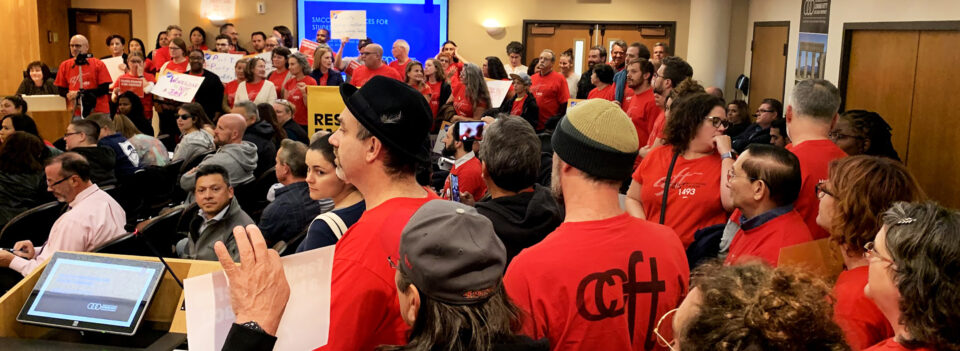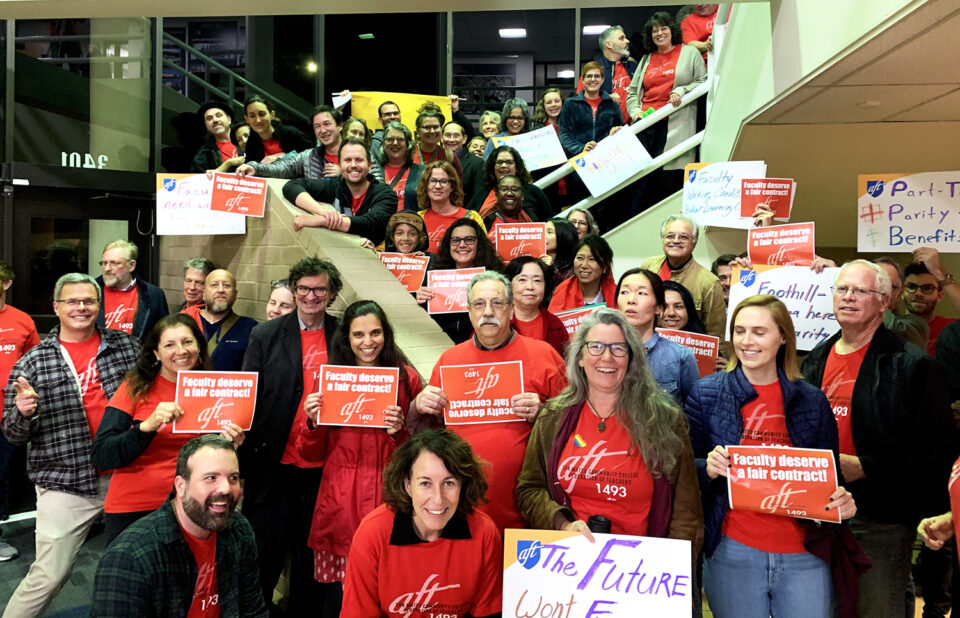
More than 90 faculty members from all three colleges crowded the District Board Room on Wednesday evening, Nov. 20, to support nine courageous colleagues who spoke eloquently to the Trustees about why faculty need a fair contract. They urged the administration and elected leaders to do the right thing by addressing workload issues, equity for part-timers, progressive discipline and due process, laboratory load credits, counselor workload, and compensation amid the deepening affordability crisis.
Watch each of the faculty member’s presentations below:
Rosemary Nurre, CSM Accounting Professor, asked the Board to imagine faculty who feel trusted and respected:
Michael Cross, Skyline College English Professor, spoke about the excessive, unsustainable workload faced by SMCCCD faculty:
Timothy Rottenberg, adjunct Government and Economics Instructor at Skyline Middle College, spoke about the need for parity between SMCCCD part-time and full-time faculty salaries:
Arielle Smith, CSM Counselor and Academic Senate President, asked for recognition and support for the extensive range of counselors’ work that is so much more than what is written in the contract:
Bridget Fischer, Skyline College Art Professor & Michelle Hawkins, Skyline College Music Professor, spoke about the need to remove SMCCCD’s current tiered system of lab FLC allocation:
Patty Dilko Hall, Cañada College Early Childhood Education Professor, shared the extreme and long-lasting effects she experienced due to the lack of investigations, due process and progressive discipline language in the contract:
Jesse Raskin, Skyline College Paralegal Professor, spoke about how making an investment in justice for faculty members allows faculty members to make an investment in justice for students:
Joaquin Rivera, Skyline College Chemistry Professor and AFT 1493 President and Chief Negotiator, spoke about the problems with the District-imposed total compensation bargaining model and how the District has plenty of money to pay for faculty’s proposals if they make it a priority:


